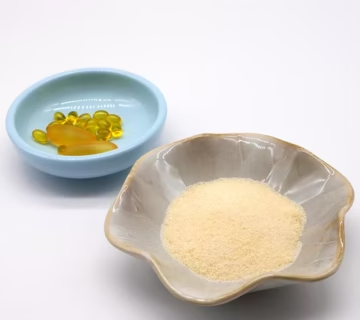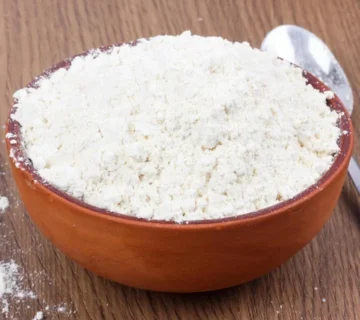In the beverage industry, cocoa powder is more than just a flavoring ingredient—it’s the backbone of chocolate drinks, hot cocoa mixes, protein beverages, and ready-to-drink formulations. For industrial producers, sourcing high-quality cocoa powder in bulk is a critical decision that influences taste consistency, solubility, color, and production efficiency. The wrong cocoa powder can result in sedimentation, off-flavors, or inconsistent viscosity, affecting both customer satisfaction and operational workflow.
From our experience supplying beverage manufacturers globally, selecting a trusted supplier is about more than cost. Reliable partners like MT Royal provide consistent product quality, multiple brand options, and technical support to help industrial buyers navigate complex procurement processes. For premium applications, European brands such as Latamarko are known for superior solubility and uniform particle size, ensuring smooth, rich chocolate beverages at scale.
This guide explores everything industrial buyers need to know about sourcing cocoa powder for beverages—from technical specifications and production tips to common pitfalls, supplier selection, and industry-specific insights.
Understanding Cocoa Powder in Beverage Applications
Cocoa powder is derived from roasted cocoa beans with most of the fat removed. In beverages, it must dissolve efficiently while maintaining flavor, color, and mouthfeel.
Key Cocoa Powder Types for Drinks
- Natural Cocoa Powder: Acidic, bright flavor profile; ideal for hot cocoa, chocolate milk, and baking applications in powdered drink mixes.
- Dutch-Processed Cocoa Powder: Alkalized for lower acidity, darker color, and smoother flavor; preferred for ready-to-drink beverages and premium hot chocolates.
- Fat-Adjusted Cocoa: Fat content ranging from 10%–24%; higher fat powders enhance creaminess and mouthfeel, while lower fat powders improve solubility in cold drinks.
Pro Tip: For cold beverages, solubility is critical—finely milled, alkalized powders like those from Latamarko prevent clumping and ensure uniform dispersion.
Why Quality Matters for Beverage Manufacturers
High-quality cocoa powder is essential for operational efficiency and consistent consumer experience.
1. Flavor Consistency
Beverage formulations must maintain the same taste across batches. Using cocoa powders with stable flavor profiles reduces the risk of off-notes, bitterness, or acid imbalance.
2. Solubility and Mixability
For powdered drinks, instant cocoa beverages, or protein shakes, rapid solubility is key. Premium cocoa powders with fine particle size and alkalization dissolve more easily, preventing clumps and reducing mixing time.
3. Color Uniformity
Consistent cocoa color ensures visually appealing products and supports brand quality standards. Alkalized cocoa powders often provide a richer, darker chocolate appearance in beverages.
4. Supply Reliability
Industrial-scale beverage production demands consistent, uninterrupted supply. Working with trusted suppliers like MT Royal ensures lead times, batch consistency, and contingency support.
Industrial Procurement Considerations
Sourcing cocoa powder for beverages requires evaluating multiple factors beyond price:
| Factor | Significance | Industrial Insight |
|---|---|---|
| Certification | Compliance with safety and export standards | HACCP, ISO, Organic |
| Solubility | Key for instant drink mixes | Test cold- and hot-solubility |
| Flavor Profile | Maintains consumer satisfaction | Pilot-test across beverage lines |
| Batch Consistency | Ensures uniform taste and color | Verify CoAs and supplier references |
| Supplier Reliability | Prevents production downtime | Evaluate inventory, logistics, and delivery schedules |
| Premium Options | Supports high-end beverages | European brands like Latamarko offer superior consistency |
At MT Royal, we supply manufacturers with multiple brands, balancing competitive pricing with proven quality.
Common Pitfalls in Beverage Cocoa Procurement
- Ignoring Solubility Requirements: Leads to clumping in powders and uneven distribution in drinks.
- Overlooking Particle Size: Impacts viscosity, mouthfeel, and filtration efficiency.
- Focusing Solely on Cost: Lower-priced powders may compromise flavor and operational efficiency.
- Assuming Interchangeability: Different alkalization levels and fat contents behave differently in hot vs. cold beverages.
Pro Tip: Always run small-scale trials before committing to bulk orders and request Certificates of Analysis (CoA) for verification.
Step-by-Step Procurement Guide
Step 1: Define Product Specifications
Clarify whether the powder will be used for hot cocoa, ready-to-drink beverages, powdered mixes, or functional drinks. Specify required fat content, alkalization, and particle size.
Step 2: Identify and Evaluate Suppliers
Assess certifications, batch consistency, and delivery reliability. Premium suppliers such as Latamarko ensure consistent quality at scale.
Step 3: Conduct Pilot Testing
Test for solubility, taste, color, viscosity, and mouthfeel in representative production batches.
Step 4: Negotiate Supply Terms
Confirm lead times, contract terms, storage, and pricing. Include contingency measures to prevent supply interruptions.
Step 5: Storage and Handling
Store cocoa powder in a cool, dry environment with sealed, odor-free containers to maintain flavor and prevent contamination.
Step 6: Continuous Quality Assurance
Monitor CoAs, inspect batches, and maintain open communication with suppliers for ongoing optimization.
Technical Advantages of Premium Cocoa
- Enhanced Solubility: Reduces mixing time and prevents sedimentation in ready-to-drink beverages.
- Flavor Stability: Consistent taste over multiple batches ensures brand reputation.
- Process Optimization: Predictable viscosity and particle behavior improve production efficiency.
- Traceability and Compliance: Certified powders facilitate audits and exports.
Anecdotes from Beverage Manufacturing
A beverage plant in Europe struggled with sedimentation in instant chocolate powders. By sourcing fine-particle, alkalized cocoa from Latamarko, they achieved:
- Smooth, clump-free powders
- Uniform chocolate color
- Reduced production time and product waste
This illustrates how supplier choice directly impacts both operational efficiency and product quality.
Comparison Table: Standard vs. Premium Cocoa Powder for Beverages
| Feature | Standard Bulk | Premium (Latamarko/European) | Production Impact |
|---|---|---|---|
| Solubility | Moderate | High | Prevents clumps, improves mixability |
| Flavor Consistency | Variable | Stable | Maintains consumer satisfaction |
| Color | Lighter, inconsistent | Rich, uniform | Enhances visual appeal |
| Certifications | Basic | ISO, HACCP, Organic | Supports export and compliance |
| Supply Reliability | Average | High | Reduces downtime |
| Technical Support | Limited | Available | Optimizes processing |
FAQs for Beverage Manufacturers
Q1: How should cocoa powder be stored for beverage production?
Store at 18–22°C, <50% humidity, in sealed containers to prevent clumping and contamination.
Q2: Can cocoa powders from different suppliers be blended?
Only after testing solubility, flavor, and alkalization, as differences can affect taste and viscosity.
Q3: Which certifications are critical?
ISO, HACCP, Organic, and Fair Trade depending on market and regulatory requirements.
Q4: How to improve solubility in cold beverages?
Use fine-particle, alkalized cocoa powders and pre-mix with emulsifiers if necessary.
Large-Scale Industrial Considerations
- Inventory Planning: Align bulk purchases with production cycles to avoid shortages.
- Quality Checks: Random batch inspections and CoA verification ensure consistency.
- Supplier Diversification: Maintain multiple certified suppliers to mitigate risk.
- Sustainability: Partner with suppliers adhering to ESG and Fair Trade practices for brand value.
Strategic Insights
Cocoa powder in beverages is a cornerstone ingredient that affects taste, color, solubility, and operational efficiency. Choosing the right supplier, like MT Royal, and considering premium options such as Latamarko, ensures reliable supply, technical support, and consistent quality.
For industrial beverage manufacturers, cocoa powder is not just an ingredient—it’s a production-critical material that defines both operational success and consumer satisfaction. Strategic sourcing, rigorous testing, and strong supplier partnerships allow you to deliver high-quality chocolate beverages efficiently at scale.







No comment